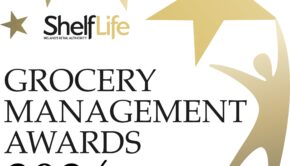In the papers this week 4 – 10 July 2009

Tesco market share slips 0.6% in Ireland while Dunnes Stores climbs 04%; FDII says suppliers forced to pay €30 million to retailers; Netto may come to Dublin
9 July 2009
Creating a "food security initiative" will be the top priority for G8 summit leaders this week, reports the Financial Times.
The move comes in response to over 1 billion people suffering from hunger. This would be a turn away from supplying food directly to those in need and instead focusing on sustainable farming, getting to the root of the problem.
The US and Japan are expected to fund the better part of it, as much as $4 billion each.
The month of June was unpleasant for both food providers and consumers as a number of food safety notices were handed out over Ireland, according to The Irish Times. Prohibition orders were given to the proprietors of Harvest Moon fish plant in Wexford and Chaplin’s Bar in Dublin 2. Closure orders were also issued to Harvest Moon, as well as Nupur Tandoori in Booterstown and Nwaneto Shopping Plaza supermarket in Balbriggan. Improvement orders were demanded of Spice Heaven takeaway in Dublin 15. The orders are given based on the danger the food, hygiene, and employee practices pose to consumers.
Food and Drink Industry Ireland has submitted a document to the Department of Enterprise, Trade & Employment claiming that suppliers have been pressured into paying €30 million to retailers, reports the Sunday Tribune. For fear that retailers might drop their products altogether, which could mean the loss of up to 30% of sales, suppliers have been giving into non-contractual demands, including funding discounts and making price reductions that don’t get passed onto the buyer. FDII is using the document to supplement their call for re-examining the grocery sector.
Danish discounter Netto, already with a strong footing in Britain, is reportedly looking to join the price war fray in Ireland, according to the Sunday Tribune. Although the rumour cannot be confirmed yet, a property-investment company revealed that a London-based discounter was looking for at least 15 locations in and around Dublin.
Tesco Mobile Ireland, the joint endeavour of Tesco and O2 to provide more affordable mobile phone and network options, had a budget deficit of €7.3 million last year, after spending €8.5 million since its inception in 2007, reports The Irish Times. Although it is believed Tesco Mobile Ireland will be able to pay this, its shareholders have agreed to provide support until June 2010 if it cannot. The company refused to comment on why it performed so poorly and how many subscribers it had made.
Tesco continues to face hard times despite its price-slashing programme, with its grocery market shares falling 0.6% in the past 12 months. In contrast, the Irish Independent reports, Dunnes Stores has seen an increase of 0.4%, while Lidl and Aldi have together gained an 11% market share. Irish Independent explores the possibility that Tesco’s ‘Britishness’ and Dunnes’ ‘Irishness’ are affecting each store’s performance in Ireland.
Meanwhile, Dunnes Stores alleges it is owed €23 million after an agreement to lay claim to two docklands sites were abandoned by the developers, reports the Irish Independent. The two areas, known as the U2 Experience and the Watchtower, were meant to be large, ‘iconic’ structures for Dublin, but no progress has been made since the basement of the Watchtower was finished. In preparation for the development, Dunnes had already put half of the anticipated €46 million cost, and is demanding that money back. The matter continues to be fought out in Commercial Court.
Finally, breaking news from the Sunday Business Post reports that the Government is being blamed for not forcing consumer price cuts amid the lowest inflation rates on record. Fine Gael deputy leader Richard Bruton said the Government was operating in a parallel universe.
On Wednesday, Marks & Spencer held an annual general meeting where a proposal to split the roles of chief executive and chairman were backed by 38% of shareholders, says The Grocer. Stuart Rose, current chief executive, discussed his understanding of those concerns about his level of power and said that a new chief executive would take his place in 2010, when he would remain only chairman. Although the proposal didn’t pass, the vote represents a growing number of worried investors.
Supreme Creations, one of the largest suppliers of cotton and jute shopping bags, has openly criticised that UK retailers are not making a greater effort to reduce plastic bag use, says The Guardian. The company blames the economy for knocking the environment off the radar, but says that although the number of bags given out has fallen 26% since 2006, more needs to be done. Ireland, India, South Africa, much of Europe, and some States have either banned or taxed plastic bags and achieved great results. Plastic bags are down 90% in Ireland since 2002, but the UK has yet to take either measure.
The plastic industry itself is making strides in its environmental impact, though, aiming to double the recycling rate of plastic by 2020. The Grocer reports that this is the first time plastics manufacturers are taking on a green campaign by their own initiative. Several organisations, including WRAP and the Local Government Association, along with Friends of the Earth, will be using the Internet to get the recycling message out.



 Print
Print






Fans 0
Followers